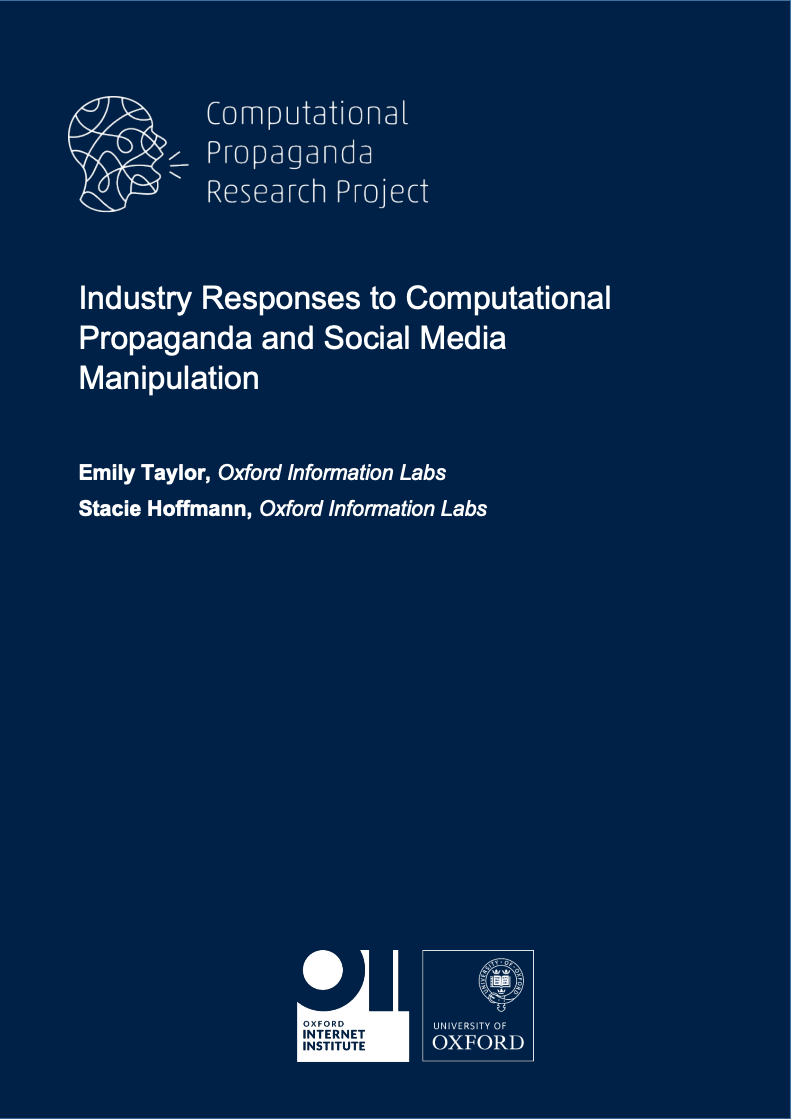
Description
This paper provides an inventory of the self-regulatory initiatives taken by six Internet platforms in response to computational propaganda between 1 November 2016 and 31 April 2018.
Blog summary
The reverberations from the 2016 US presidential elections continue to be felt across the world. In November 2016, the idea that one of the world’s most sophisticated democracies could have been gamed by hostile states using social media platforms seemed ‘crazy’ to more people than Mark Zuckerberg. But as more evidence emerges – whether from FBI investigations, announcements by the intelligence services, disclosures by whistle-blowers, the Cambridge Analytica scandal, or examples of digitally distributed disinformation in other countries and around other elections – an uncomfortable picture takes shape. Silicon Valley’s leading technology companies and social media platforms have found themselves at the centre of a perfect storm.
What have Internet companies done to combat the creation and spread of computational propaganda on their platforms and services? What do the leading players’ initiatives tell us about their coping strategies? How are their actions supported by the companies’ terms and policies for users and advertisers? And have there been any substantial policy changes as a result of the proliferation of computational propaganda?
Topics:
- An Overview of Major Platforms’ Responses to Computational Propaganda
- Platforms’ Terms of Service, User Agreements, and Privacy and Advertising Policies
- Profiles on social media companies such as Google, Facebook and Reddit.
About this Blog
Publisher
Oxford Internet Institute
File type
PDF
File size
480k
Page count
49
First published on
Invalid Date

